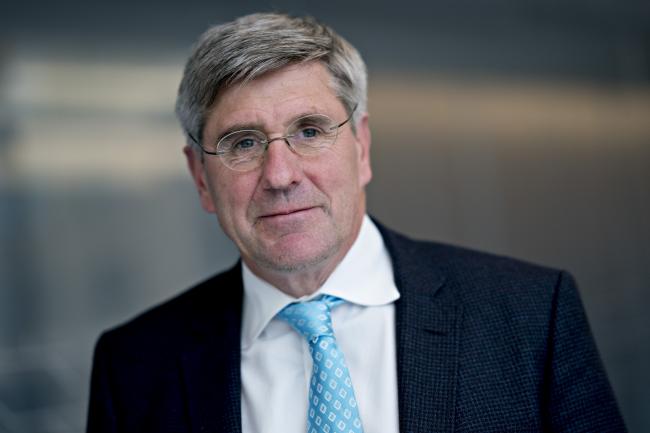(Bloomberg) -- Stephen Moore, who Donald Trump may nominate for a seat on the Federal Reserve Board, told the New York Times in an interview that the central bank should immediately reverse course and lower interest rates by half a percentage point.
That’s a contrast from language used by sitting board members in recent days. San Francisco President Mary Daly told reporters Tuesday that the appropriate policy is being patient. Minneapolis’ Neel Kashkari and Chicago’s Charles Evans also called for called for caution since the Fed met last week.
Boston President Eric Rosengren said in a March 22 interview he’s “more optimistic” over the outlook for economic growth and inflation than most of his colleagues on the central bank’s policy-setting Federal Open Market Committee.
Officials held rates steady at their March 19-20 meeting as global risks cloud the outlook and inflation remains shy of their 2 percent target, which it has undershot for most of the past decade.
Moore made his comments in an interview with the newspaper, in which he also said he wouldn’t be a "sycophant" for Trump if nominated and confirmed. He said he regretted previous remarks calling for the Fed chairman Jerome Powell to resign.
“I was really angry” about the Fed’s December rate increase, Moore told the newspaper. “I was furious — and Trump was furious, too. I just thought that the December rate increase was inexplicable. Commodity prices were already falling dramatically.”
Moore, a visiting fellow at the Heritage Foundation and a long-time supporter of Trump, has emerged as an ardent critic of the Fed’s Board under Powell. Placing him on the board may be the president’s attempt to check Powell and head off further tightening of U.S. monetary policy that Trump believes could slow economic growth before his 2020 re-election campaign.
His comments come as Fed officials play down warning signs from the bond market after the yield on 10-year Treasuries last week fell below 3-month rates for the first time since 2007. Such yield-curve inversions have frequently preceded recessions. Investors now see better than a 50 percent chance of a Fed rate cut by September, according to pricing in federal funds futures contracts.
Evans said Monday that yield curves recently have been “throwing off a slightly higher probability of recession” but they have “often misfired” in the past. Rosengren said Tuesday he doesn’t “take nearly as much information from the shape of the yield curve as some people do,” though it should pick up if the economy grows as he expects.
